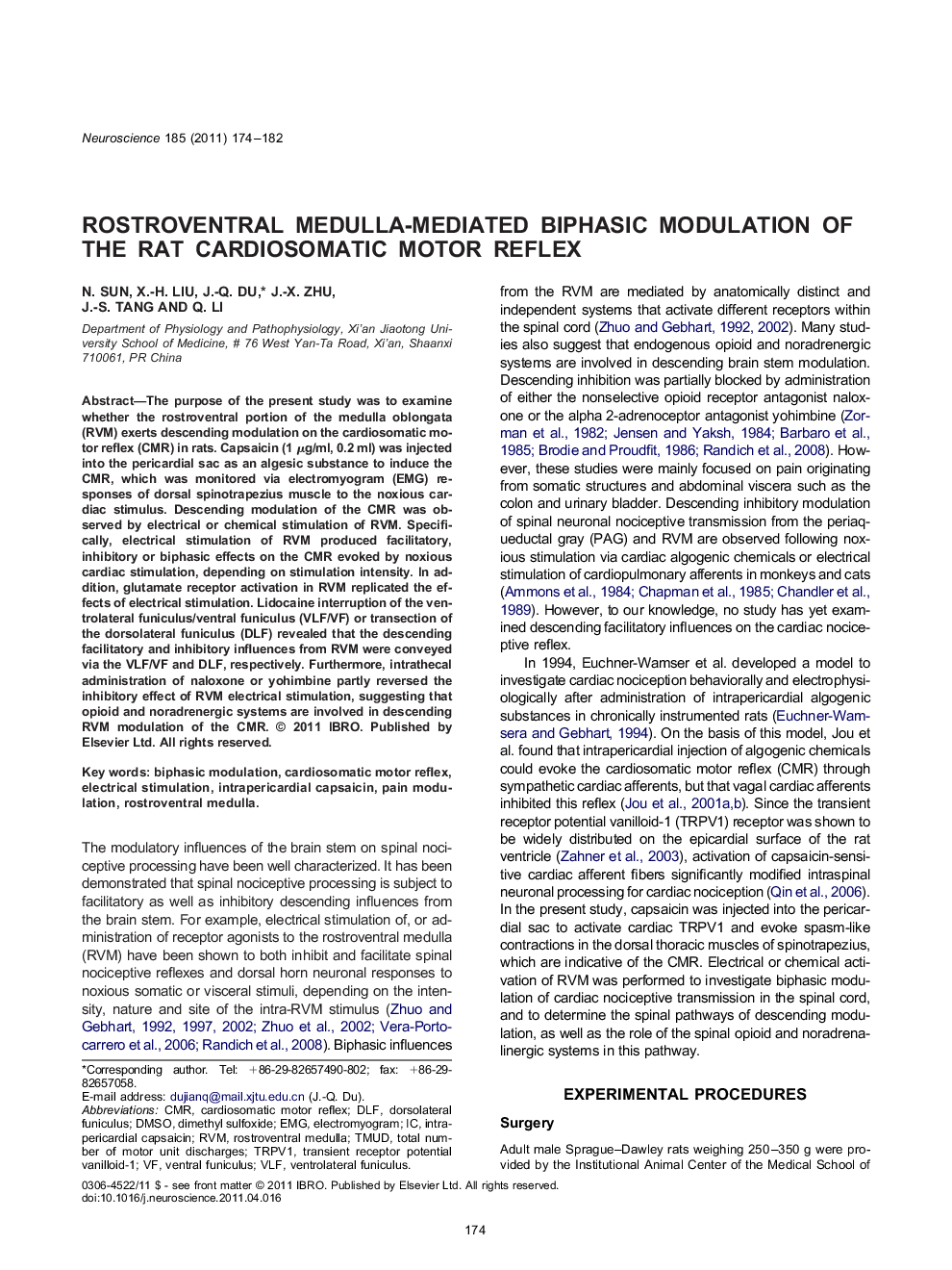| Article ID | Journal | Published Year | Pages | File Type |
|---|---|---|---|---|
| 4338903 | Neuroscience | 2011 | 9 Pages |
The purpose of the present study was to examine whether the rostroventral portion of the medulla oblongata (RVM) exerts descending modulation on the cardiosomatic motor reflex (CMR) in rats. Capsaicin (1 μg/ml, 0.2 ml) was injected into the pericardial sac as an algesic substance to induce the CMR, which was monitored via electromyogram (EMG) responses of dorsal spinotrapezius muscle to the noxious cardiac stimulus. Descending modulation of the CMR was observed by electrical or chemical stimulation of RVM. Specifically, electrical stimulation of RVM produced facilitatory, inhibitory or biphasic effects on the CMR evoked by noxious cardiac stimulation, depending on stimulation intensity. In addition, glutamate receptor activation in RVM replicated the effects of electrical stimulation. Lidocaine interruption of the ventrolateral funiculus/ventral funiculus (VLF/VF) or transection of the dorsolateral funiculus (DLF) revealed that the descending facilitatory and inhibitory influences from RVM were conveyed via the VLF/VF and DLF, respectively. Furthermore, intrathecal administration of naloxone or yohimbine partly reversed the inhibitory effect of RVM electrical stimulation, suggesting that opioid and noradrenergic systems are involved in descending RVM modulation of the CMR.
Graphical abstract•••Figure optionsDownload full-size imageDownload high-quality image (117 K)Download as PowerPoint slideHighlights▶Intrapericardial capsaicin induced cardiosomatic motor reflex (EMG response). ▶RVM biphasically modulated the EMG response. ▶VLF/VF and DLF conveyed the descending facilitation and inhibition, respectively. ▶Opioid and noradrenergic systems are involved in the descending modulation.
